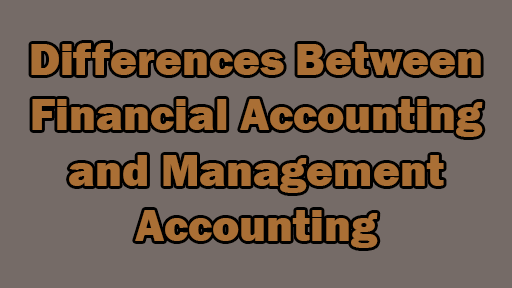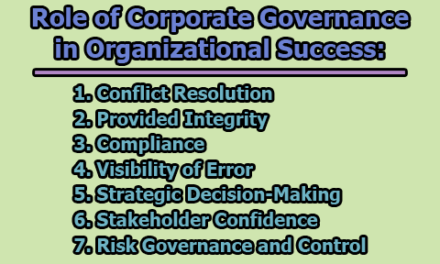Differences Between Financial Accounting and Management Accounting:
Accounting serves as the backbone of financial management, providing crucial information to guide decision-making within organizations. Two primary branches of accounting, financial accounting, and management accounting, cater to distinct audiences and purposes. Financial accounting is designed to meet the informational needs of external stakeholders, such as investors and regulatory bodies, ensuring transparency and compliance with established standards. In contrast, management accounting focuses on delivering tailored insights to internal management, empowering them with the tools necessary for effective planning, control, and decision-making. This comparative analysis aims to delineate the key differences between financial accounting and management accounting.
| Aspect | Financial Accounting | Management Accounting |
| Primary Purpose | To provide external stakeholders with information for decision-making and investment purposes. | To assist internal management in planning, control, and decision-making. |
| Users | External parties such as investors, creditors, regulators, and the general public. | Internal management, including executives, managers, and employees. |
| Time Frame | Historical data, typically reported on a quarterly and annual basis. | Emphasizes both historical and future-oriented data for short-term and long-term planning. |
| Scope of Reporting | Broad and comprehensive, covering the entire organization. | Tailored to the specific needs of management and may focus on specific departments or projects. |
| Regulatory Requirements | Compliance with generally accepted accounting principles (GAAP) and regulatory standards. | No strict regulatory requirements, allowing for greater flexibility in reporting methods. |
| Format of Reports | Standardized financial statements (income statement, balance sheet, cash flow statement). | Customized reports based on the information needs of management, such as budgets, forecasts, and variance analyses. |
| Focus on Objectivity | Emphasizes objectivity and verifiability to ensure accuracy and reliability of financial statements. | Allows for more subjectivity and flexibility to meet the specific needs of management. |
| Recording Transactions | Follows double-entry accounting principles and records all financial transactions. | May use various methods and techniques to capture both financial and non-financial information relevant to decision-making. |
| External Audit | Often subject to external audits by independent auditors. | Generally not subject to external audits, as the focus is on internal use. |
| Financial Statements Usage | External financial statements, including income statements and balance sheets. | Internal reports such as budgets, performance reports, and forecasts. |
In conclusion, financial accounting and management accounting represent two sides of the same coin in the field of accounting. While financial accounting ensures accountability and transparency to external entities, management accounting serves as a strategic tool for internal decision-makers. The table above encapsulates the nuanced distinctions between these disciplines, illustrating how each contributes uniquely to an organization’s financial management landscape. By understanding and leveraging the strengths of both financial and management accounting, businesses can navigate the complexities of the modern economic landscape, making informed decisions that drive sustained success. The synergy between these two branches forms the foundation for effective financial management, a crucial component in achieving organizational objectives in today’s dynamic business environment.
References:
- Spiceland, J. D., Thomas, W. B., & Herrmann, D. (2022). Financial Accounting (6th ed.). McGraw-Hill Education. https://www.mheducation.com/highered/product/financial-accounting-spiceland-thomas/M9781260786521.html
- Drury, C. (2018). Management and Cost Accounting (10th ed.). Cengage Learning EMEA. https://nibmehub.com/opac-service/pdf/read/Management%20and%20Cost%20Accounting.pdf

Library Lecturer at Nurul Amin Degree College










